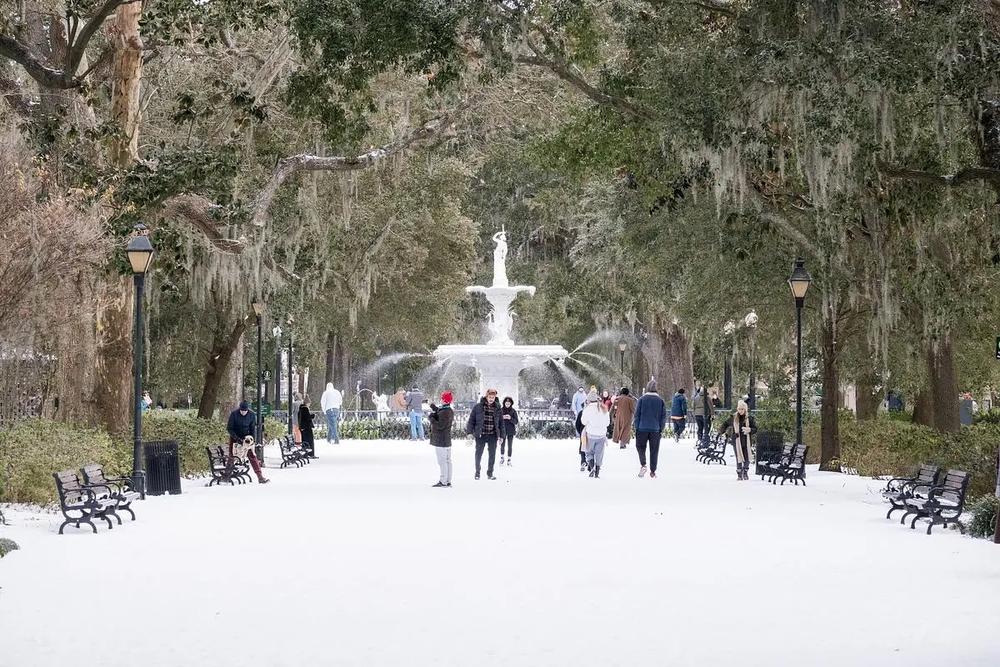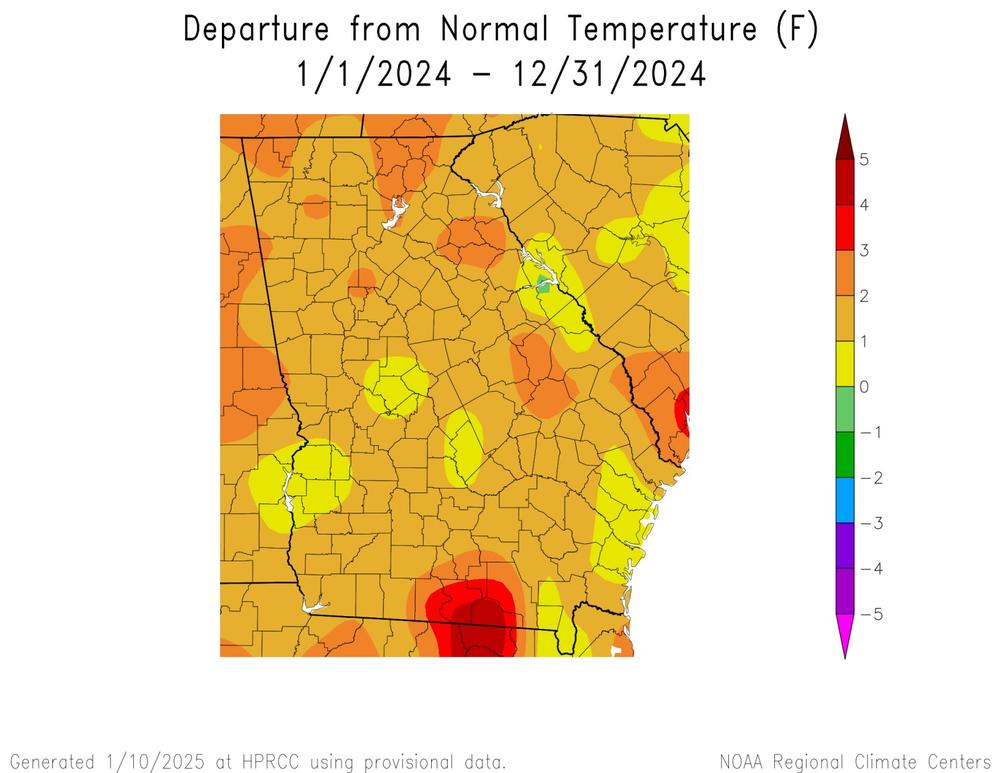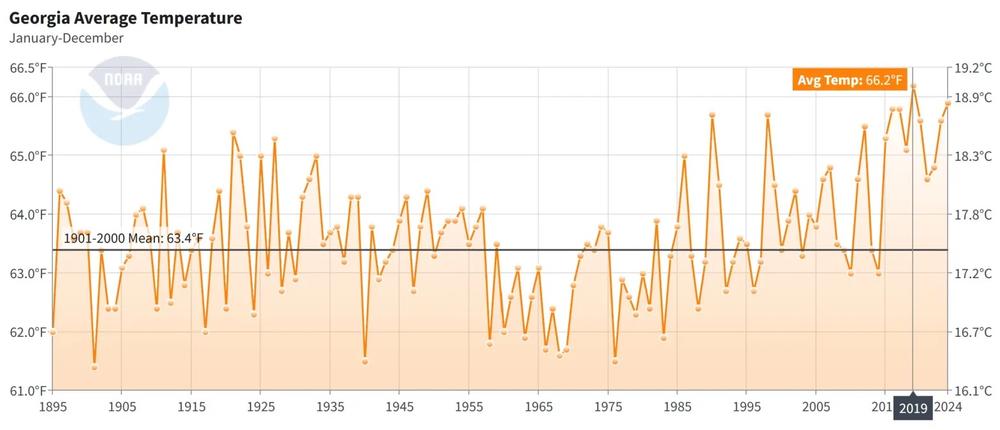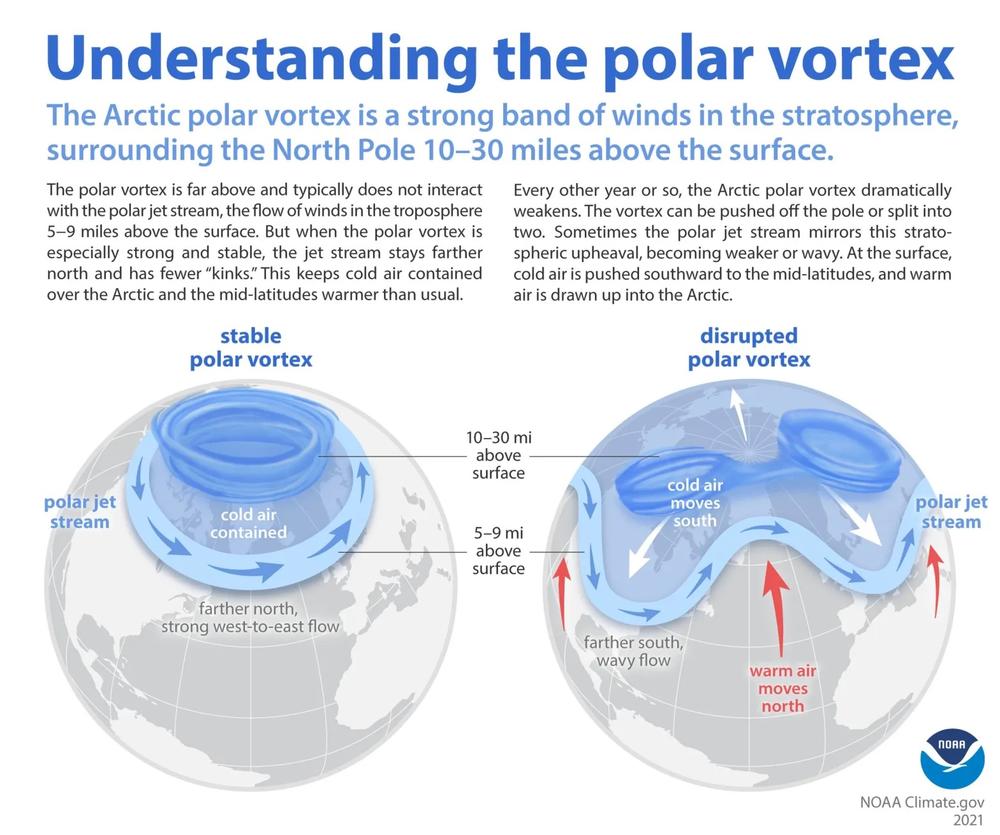
Section Branding
Header Content
Coastal Georgia snow likely a result, not a refutation of climate change
Primary Content

By Mary Landers, The Current
Last year was a hot one in Georgia but last week’s snow is not evidence we’re headed in a different direction, Georgia scientists say.
“Overall, 2024 was the 2nd warmest year in Georgia on a record extending back to 1895,” Eleanor Partington, a climatologist in the Georgia State Climatology office wrote in the 2024 Climate Summary for Georgia.

The average temperature statewide in 2024 was nearly 2.5 degrees F above the 20th century average, according to NOAA.
“These above-average temperatures are likely due to climate change,” Partington wrote in an email to The Current. “Although year-to-year variation in temperatures can be a result of many variables, such as ENSO, 2024 fits within the multi-decade warming trend that is a result of climate change.” ENSO refers to the El Niño-Southern Oscillation, a recurring climate pattern involving changes in the temperature of waters in the central and eastern tropical Pacific Ocean that affects weather in large swaths of the U.S.

“Last year was Savannah’s seventh warmest year on record (1948-present) with an average temperature of 69.3 F (+2.6 above 1948-2000 average). Savannah’s warmest year on record was 2017 with an average temperature of 70.1 F,” Partington wrote. “Statewide, the warmest year on record (1895-present) was 2019 with an average temperature of 66.2 F (+2.8 F above 1901-2000 average).”
Worldwide, last year marked a new record high average temperature since 1850.
“In 2024, global surface temperature was 2.32 °F (1.29°C) above the 20th-century average. This ranks as the highest global temperature in the period of 1850–2024, beating the next warmest year (2023) by 0.18°F (0.10°C),” the NOAA National Centers for Environmental Information posted earlier this month.
Given all that evidence of warming, how do scientists explain last week’s snow, ice and frigid weather in Coastal Georgia?
Marc Frischer , Professor of Marine Sciences at the University of Georgia, Skidaway Institute of Oceanography saw the snow and freezing temperatures as a “teachable moment.”
“With the extremely cold weather we had last week I was hearing comments from acquaintances (many folks that I play tennis with) about the hoax that climate change was,” he wrote in an email to The Current.
He posted to an explanation to Facebook.
“Your periodic reminder that less ice at the Arctic is consistent with a weaker jet stream that allows cold air to drift down into the Great Plains, the post reads. “The frigid temps you’re experiencing happen because of a warming planet, not despite it.”

While Frischer is a microbiologist by training, understanding and predicting impacts of climate change on marine food networks has become a central focus of his research.
The Arctic is warming faster than the planet as a whole. The idea that accelerated Arctic warming leads to a weaker and ‘wavier’ jet stream is well-accepted, Frischer wrote in an email.
Figuring out if last week’s cold weather can be attributed to this phenomenon will take a while, but it fits the expected pattern.
“I have not seen anywhere that last week’s cold spell in Savannah has been attributed to the loss of Arctic sea ice but then again I haven’t looked either,” Frischer wrote. “A downward movement of the jet stream (what we saw) that picked up moist air coming off the Gulf, however, is what created the system we just experienced and that is consistent with our understanding of the behavior of the jet stream under ongoing climate change conditions.”
“I expect loss of ice in the Arctic to make events like we experienced last week more likely and, in general, our weather to be less predictable,” Frischer wrote.
This story comes to GPB through a reporting partnership with The Current.

